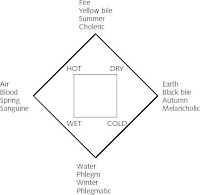 |
| Aphra Behn |
"The Disappointment" mocks the pastoral genre and its idealization by setting the story between a shepherdess, Cloris, and a shepherd, Lysander's imperfect erotic encounter.
Feminine Ending: unaccented syllable in a line of poetry.
Lady Mary Wroth's poem "Song" utilizes feminine endings throughout the poem to emphasize a specific couplet in which she addresses the reader directly (Lines 11-12).
Lady Mary Wroth's poem "Song" utilizes feminine endings throughout the poem to emphasize a specific couplet in which she addresses the reader directly (Lines 11-12).
Rhetorical Distance: distance established between author and poetic persona.
Aphra Behn's poem, "The Disappointment" exhibits rhetorical distance threefold, from the narrator, the poetic persona, and the characters, especially in the final scene when Lysander damns everything for his erectile dysfunction (Lines 131-140).
Aphra Behn's poem, "The Disappointment" exhibits rhetorical distance threefold, from the narrator, the poetic persona, and the characters, especially in the final scene when Lysander damns everything for his erectile dysfunction (Lines 131-140).
 |
| Four Humors |
Aphra Behn uses the humoral theory of fluids transferring in the body to express Cloris's erotic disappointment in Lysander (Lines 116-117).